
9 minute read
TO LIVEABOARD OR NOT – HURGHADA, EGYPT
TO LIVEABOARD OR NOT HURGHADA, EGYPT THE ADVENTURES OF A UAE DIVER
FEATURE SARAH MESSER PHOTOGRAPHY HANI BINHADI AND AHMED RAMADAN
As an addicted diver, you probably, like me, eagerly look at the public holidays each year to see where you can extend your vacation time to make the most of days off and feed your underwater habit. 2019 in the UAE was a pretty good year for extended holidays.
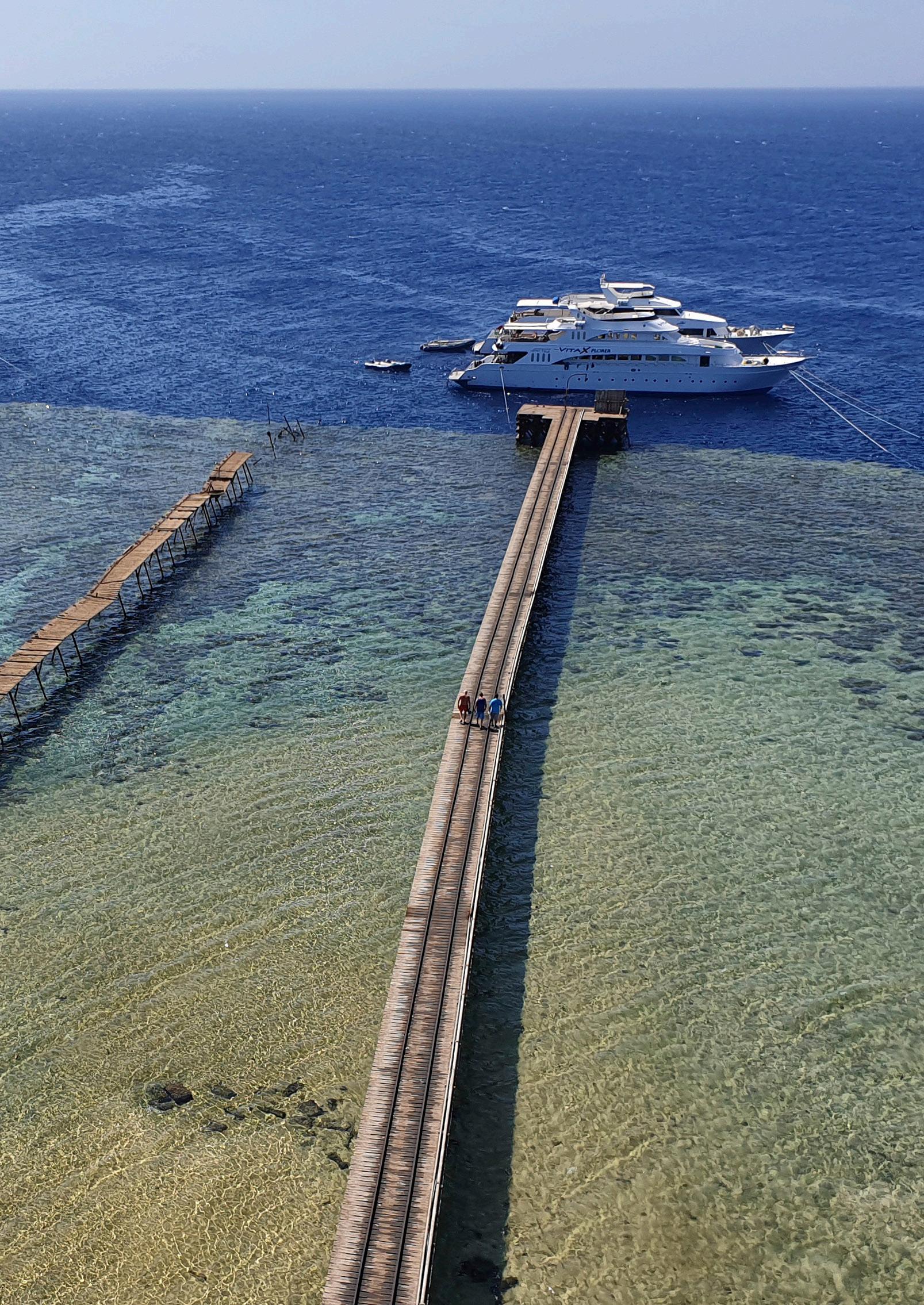
In August we were lucky enough to receive three days’ holiday for the Eid al-Adha religious period, and with my office closed, it was time to pack up my diving case once more and head to Hurghada in Egypt for 2 weeks.
One diving question I’m always debating, is whether ‘to liveaboard or not to liveaboard’. Often the answer for me is based upon two things; location (is it actually possible to do a land based trip?) and diving potential (can I get to more dive sites that are further away?). In the case of Hurghada, the latter was the answer. Only on a liveaboard can you do the legendary trip of Brothers, Daedalus, and Elphinstone, which regularly feature on lists of the top dive sites in the world. And because of the Eid holidays, I chose to do this trip twice in consecutive weeks with different liveaboard operators. Remember, addicted diver here!
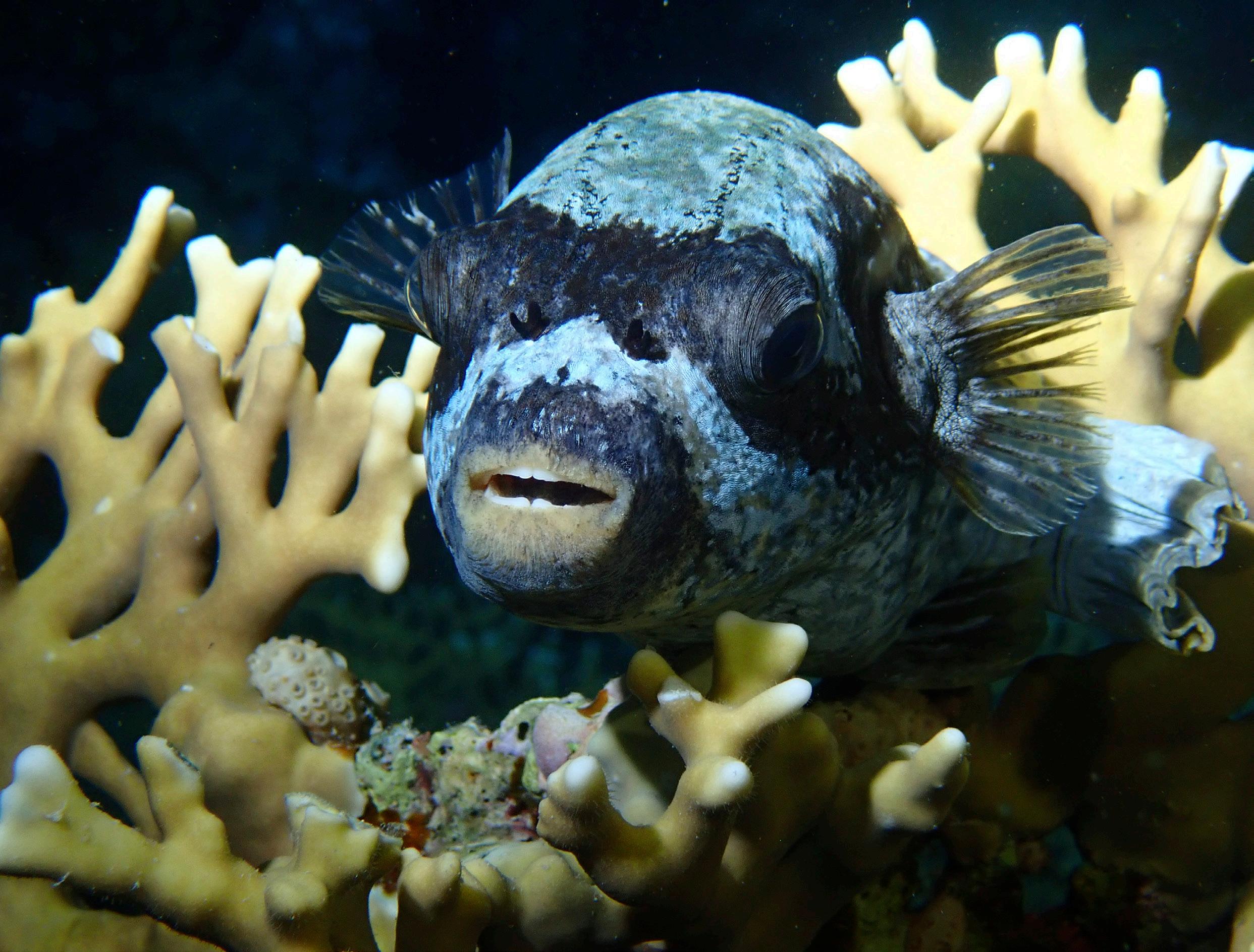
When I first thought what to write about for this article, I wanted to mainly tell you about the incredible marine life that we saw, and really, it was incredible, but I will talk about that again towards the end of my story.
LIVEABOARD VERIFICATION LIST
However, I want to highlight a far more serious and important topic first. Since I took my summer trip, there have been two liveaboard disasters, and I don’t use the word disaster lightly. Many divers and crew lost their lives in these events – when both the liveaboard in California, USA, and much closer to home, on this very same trip from Hurghada in Egypt caught fire and exploded. Exploded. You can read about the stories in the media for yourselves. For myself, and for the purpose of this article, I want to highlight some of the things that I didn’t do before my own trips, and the questions and actions I will now take each and every time before and during a liveaboard vacation:
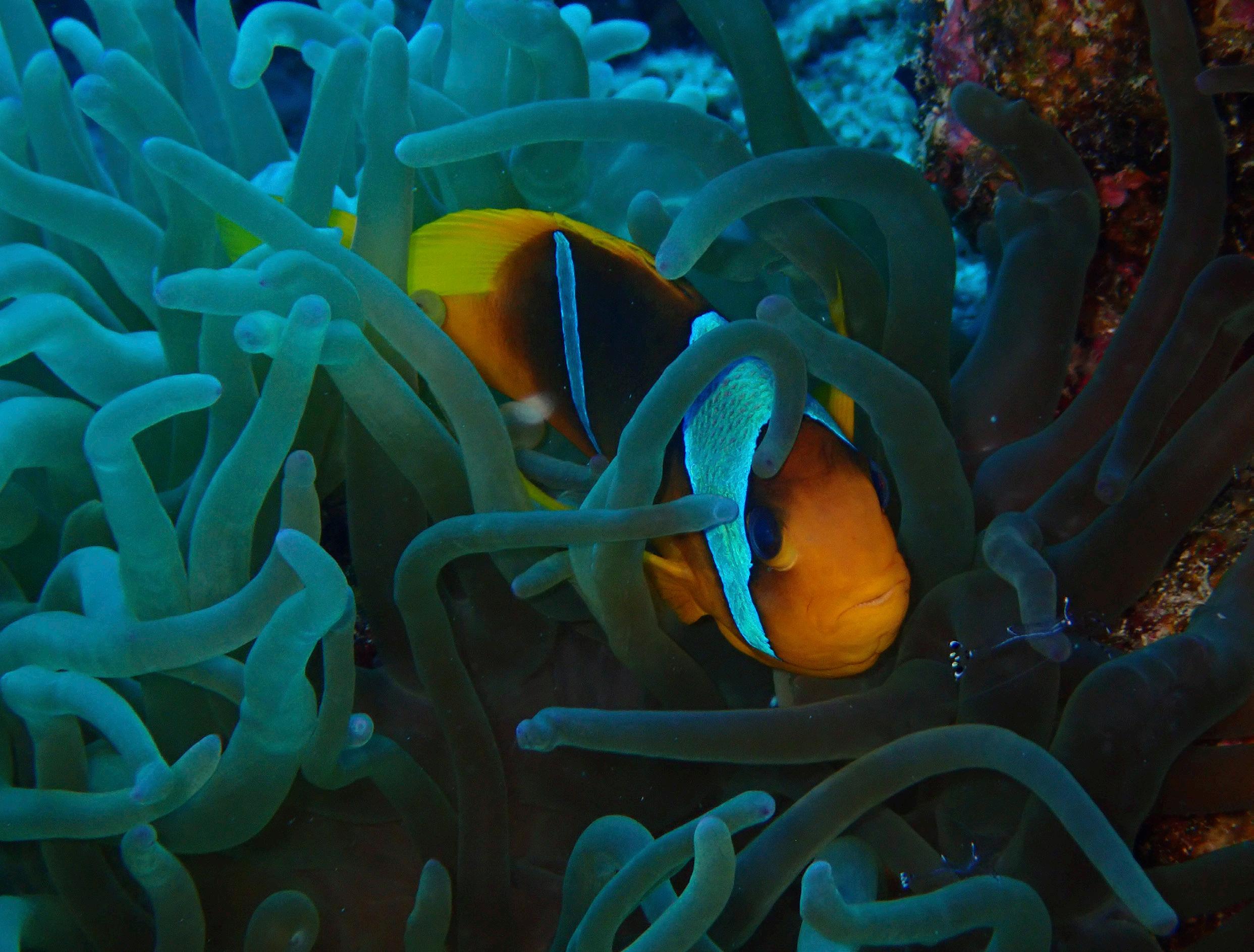
1. Ask the operator about the service history of the boat. How old it is, when was it last fully serviced, when is the next service due, have there been any major issues with the boat, when was the emergency equipment last tested and certified?You can start to get a picture of the vessels current condition. My experience in Egypt, was there were teething problems on both boats that the crew were doing their best to fix in the moment, but it’s the operators duty to ensure they are not recurring and damaging to the long term health of the boat, the people on board, or the reefs and marine life. It doesn’t take much for an issue to become a much larger problem if ignored.
2. Read fellow divers’ reviews. As I am often a lone traveller, I look for very specific information around safety in the reviews I find. I also try to leave my own honest reviews that will mean other divers can make a good judgement call of their own. Look for photos, you will start to get a visual sense of the health of the ship.
3. Pay close attention to the emergency briefing. It should happen as soon as you are on board, before you even set sail. Listen. Ask questions. Make sure your buddies are listening. In an emergency situation, remembering these details could be the means by which you survive.
4. Ask the crew to show you all the emergency equipment. Exit doors, smoke alarms, locations of fire extinguishers, first aid kit, emergency radio. Physically go to look at them yourself – are the exits clear? Is all the equipment accessible and not locked away? Where are the closest emergency exits to your room? The crew should care about your safety as much as you do.
5. Do what you’re told to do. When the crew tell you not to charge any batteries in your room,it’s not because they’re being difficult. Batteries and chargers can overheat and catch fire.Fact.Onlycharge yourequipment in the designated areas and see it as your duty to act as the Charger Police if you see one of your buddies breaking these rules.
6. Make sure there is a watchman through the night. Every boat should have a member of the crew patrolling the boat all night, no exception. They are the first to spot an issue arising and raise the alarm quickly, both mitigating the risk of a problem even occurring, and maximising the time for reaction and evacuation when one does. Survivor stories from the most recent fire in Egypt suggests that no watchman was awake throughout the trip. I am grateful now, although I didn’t know at the time I needed to be, that on both my trips the Captain and/or the Engineer were patrolling the vessel at all hours.
Thankfully, these types of incidents are few and far between. Some simple awareness and action from every one of us will help ensure it stays that way, and perhaps reduce the chances even further.
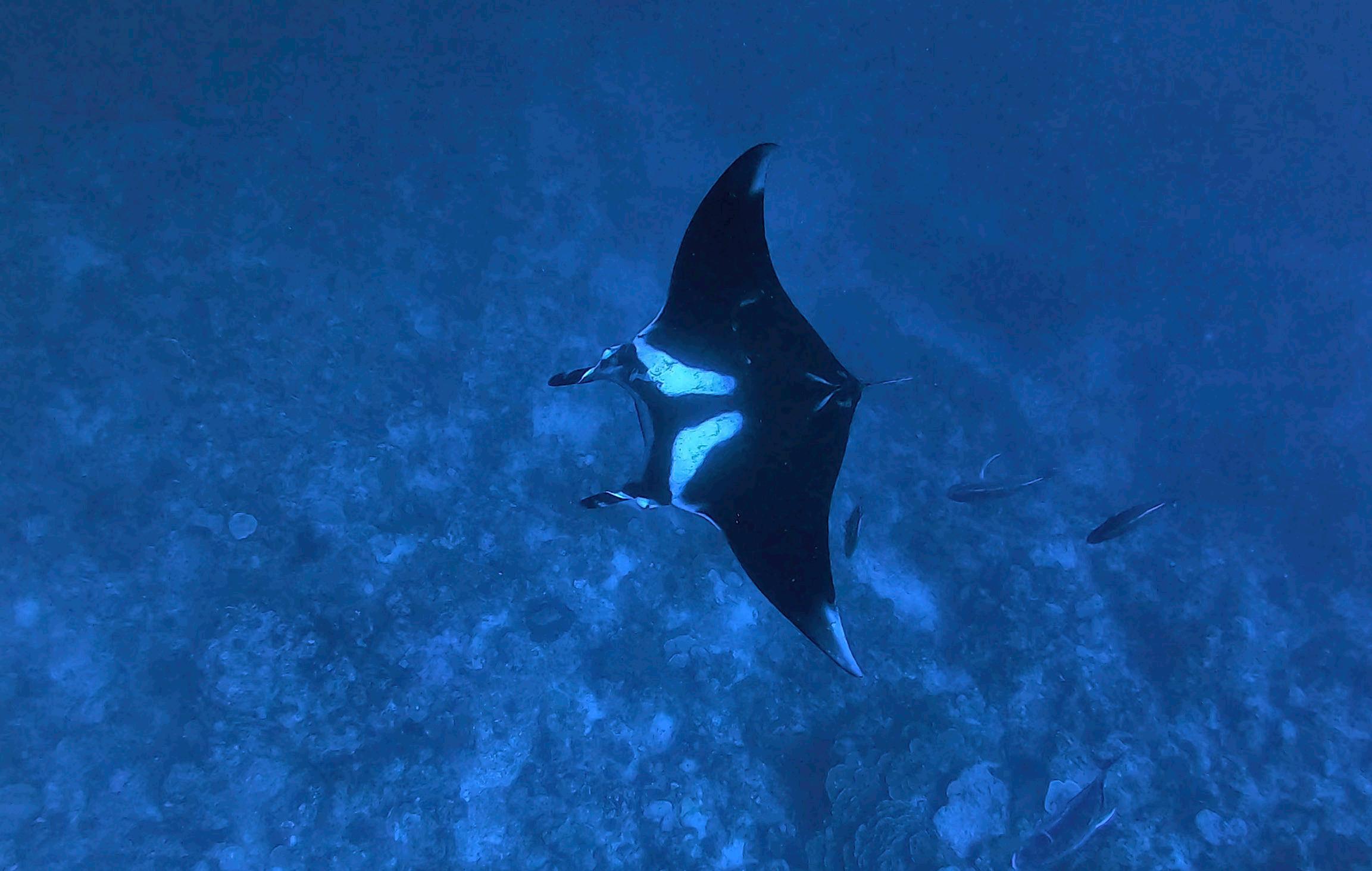
THE LIVEABOARD EXPERIENCE
OK, so safety tips done, I dedicate the rest of this article to telling you about the fabulous liveaboards I went on, and more importantly, the magnificent marine life we saw.
Week one, 1 was with Emperor Divers on board the Emperor Asmaa, and week two, I was with JP-Marine on their boat of the same name. I won’t lie, both boats had some small issues and needed some love – you get the feeling all the boats are being hammered week-in and week-out at maximum diver and crew capacity, and temporary fixes are being put into place, sticking plasters over the problems. Both boats had experienced engineers on board to deal with anything that could arise; big men with big hearts, loud laughter and lively singing and dancing.
Week one, I travelled as a lone diver with Emperor and found a boat full of lovely divers from Norway and Thailand, and as a result, I have a new set of people to add to my travel list and a new diving and room buddy (who did not snore once – bonus). Week two was with a big group of my UAE divers on JP, and you all know how much fun it is to be with your favourite buddies who know you and your watery behaviours well. My regular buddy gave me new sleep goals after her rather incredible ability for deep sleep regardless of motion or noise.
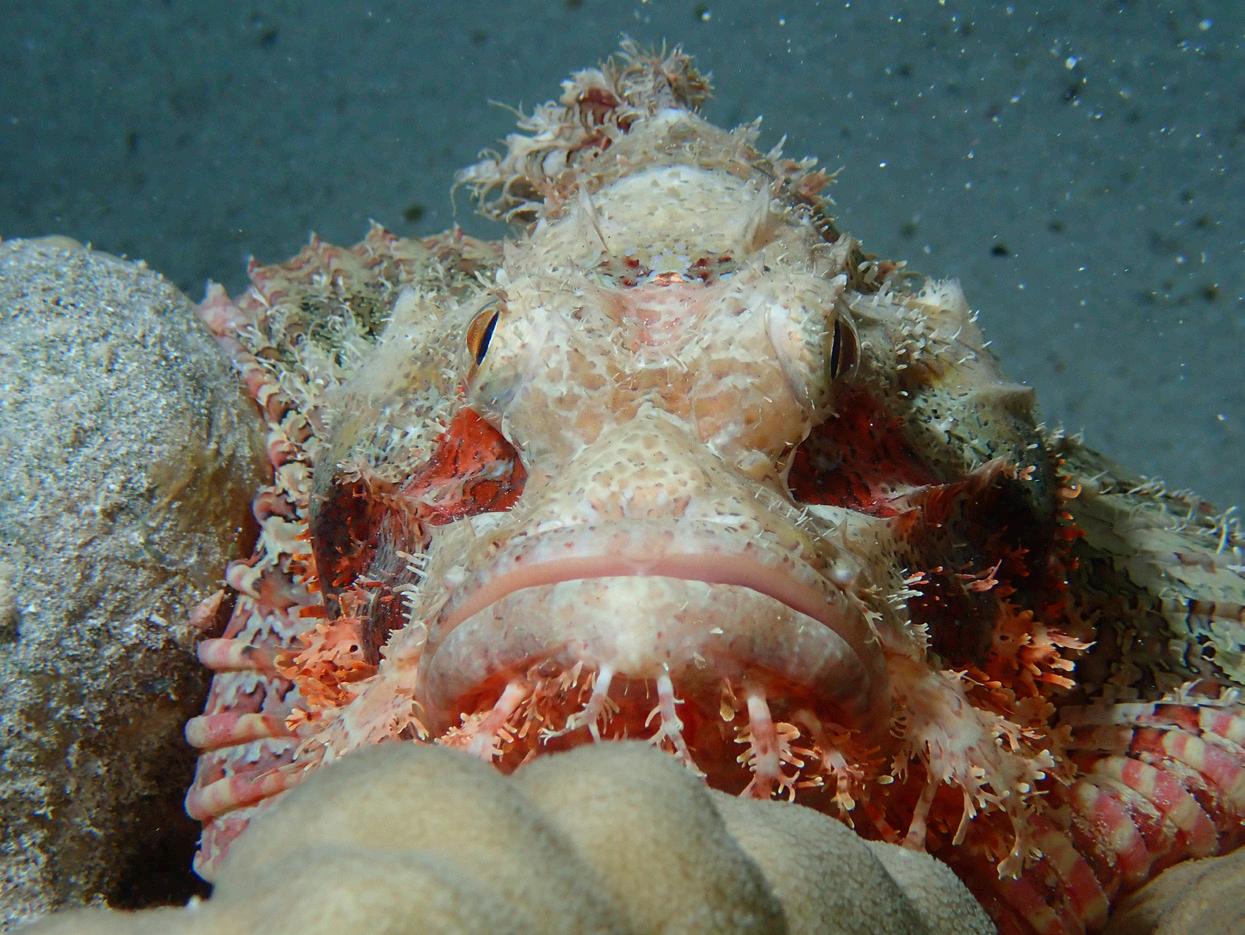
It’s important to mention the crew. Each boat came with some 10+ crew members, each with their own role to play, and all willing to help you out at any time. They work really hard with long hours, and they do it with big smiles. From the chefs in the galley, turning out delicious meals with multiple menu choices 3 times a day, plus post dive freshly cooked snacks (in the middle of August, in Egypt, you can imagine the temperature in those tiny kitchens), to the deck hands whose job it is to help you in and out of your kit and make sure all the on-deck equipment is ready and waiting. Both Emperor and JP had a really great team.
It is useful to set the boats apart so you know the differences between them. Personally I was more impressed with the Instructors and Guides on the Emperor;theirbriefings –ifa little long –were excellent. Detailed reef explanations, good visuals and maps, constant reminders of safety instructions and diving signals. This is not saying the Instructors on the JP were bad, in fact they too were very good, there were no safety or briefing lapses. On the Emperor they just went to a higher level. Also with the crew on Emperor, their English was just a little better which made communication easier, and as a whole the crew engaged with us all more.
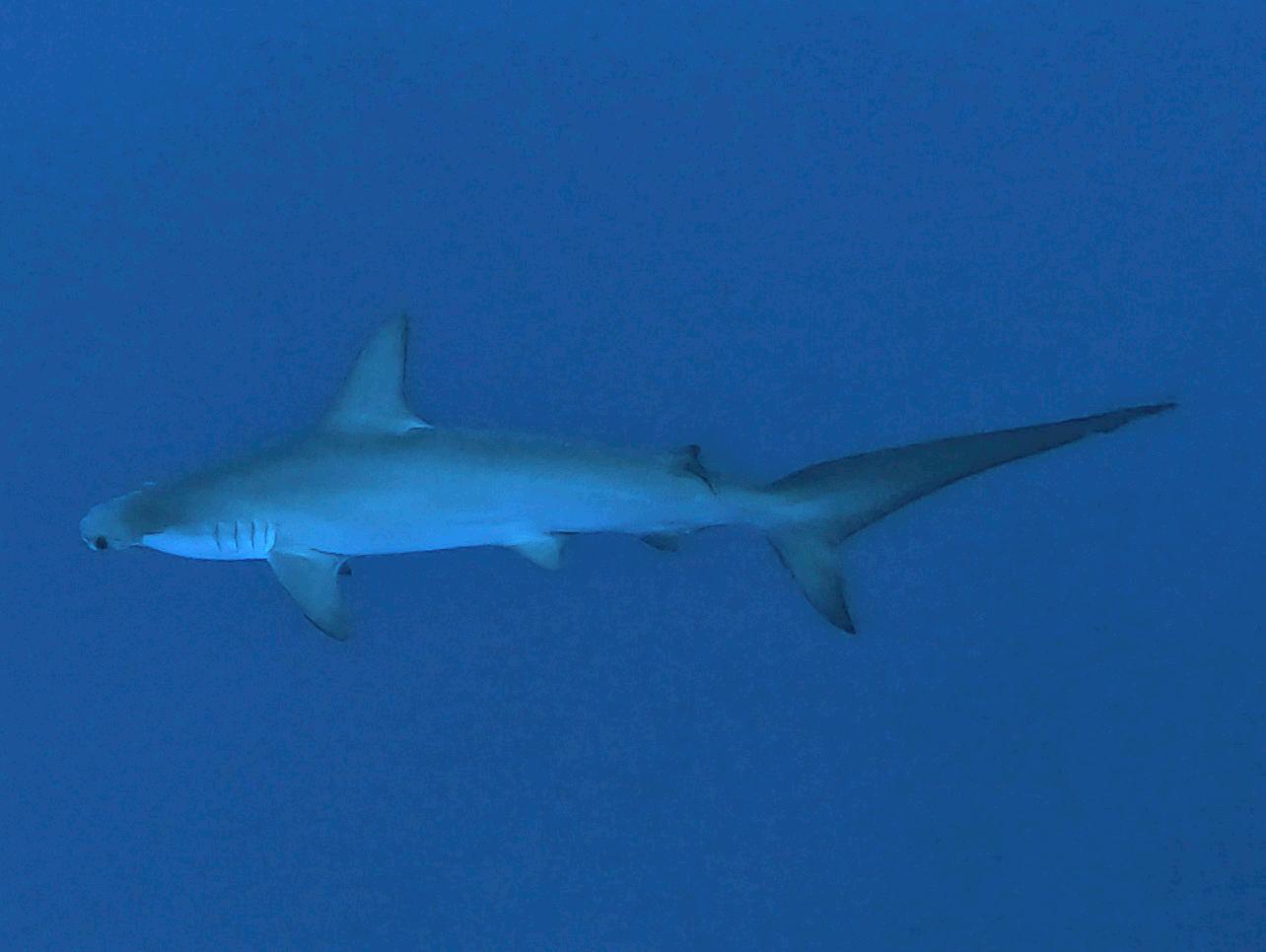
One benefit of the JP-Marine is space –with a similar number of divers on each boat (JP if at capacity, can hold a few more divers than Emperor), the JP is overall a bigger boat which means it’s more comfortable on the dive deck. The upper deck lounging area is more spacious and comfortable for between-dive relaxing (to be fair, mainly post-dive snoozing), and the inside lounge and meal area where dive briefings take place, was also a more convenient size.
THE MARINE LIFE
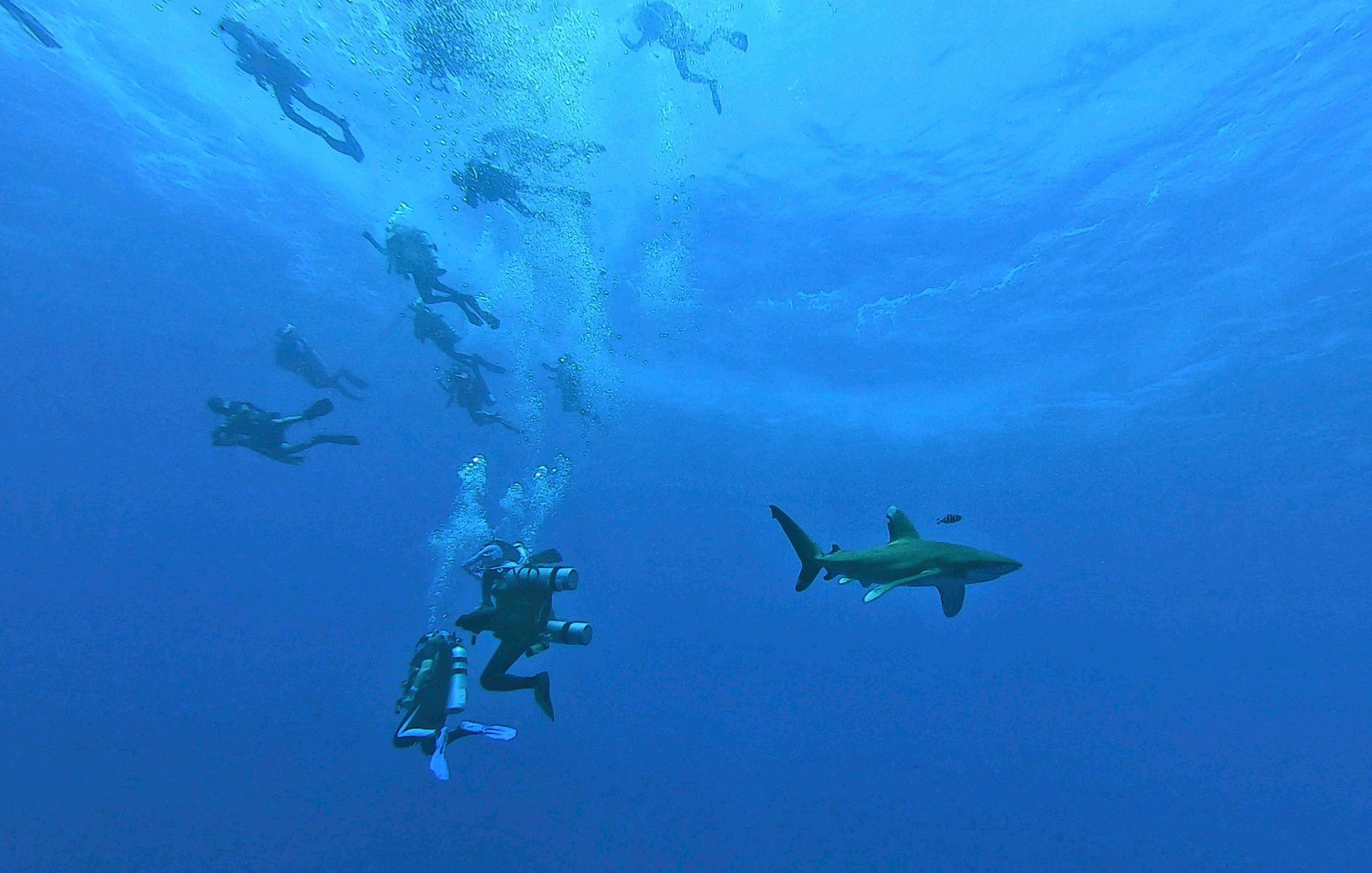
The addicted diver will have noticed by now that I still haven’t mention the marine life. That’s because I’ve saved the best till last. In all my diving dreams, I had never expected to see so much. Be aware, the Brothers-Daedalus-Elphinstone trip is all about the blue. If you prefer to spend your time looking at techni-colour reefs and searching for coral residents, this might not be the trip for you. With a few exceptions, you’re in the blue most of the time, looking at large pelagic passersby. We were not disappointed. Several whale sharks, sometimes together, often on their own; families of hammerheads on almost every dive in Daedalus; the predatory oceanic whitetips, otherwise known as Longimanus, hanging around waiting for photographic opportunities in Elphinstone; schools of dolphins; the odd thresher or two; some not so shy dugongs. Serious“OMG” on every dive!
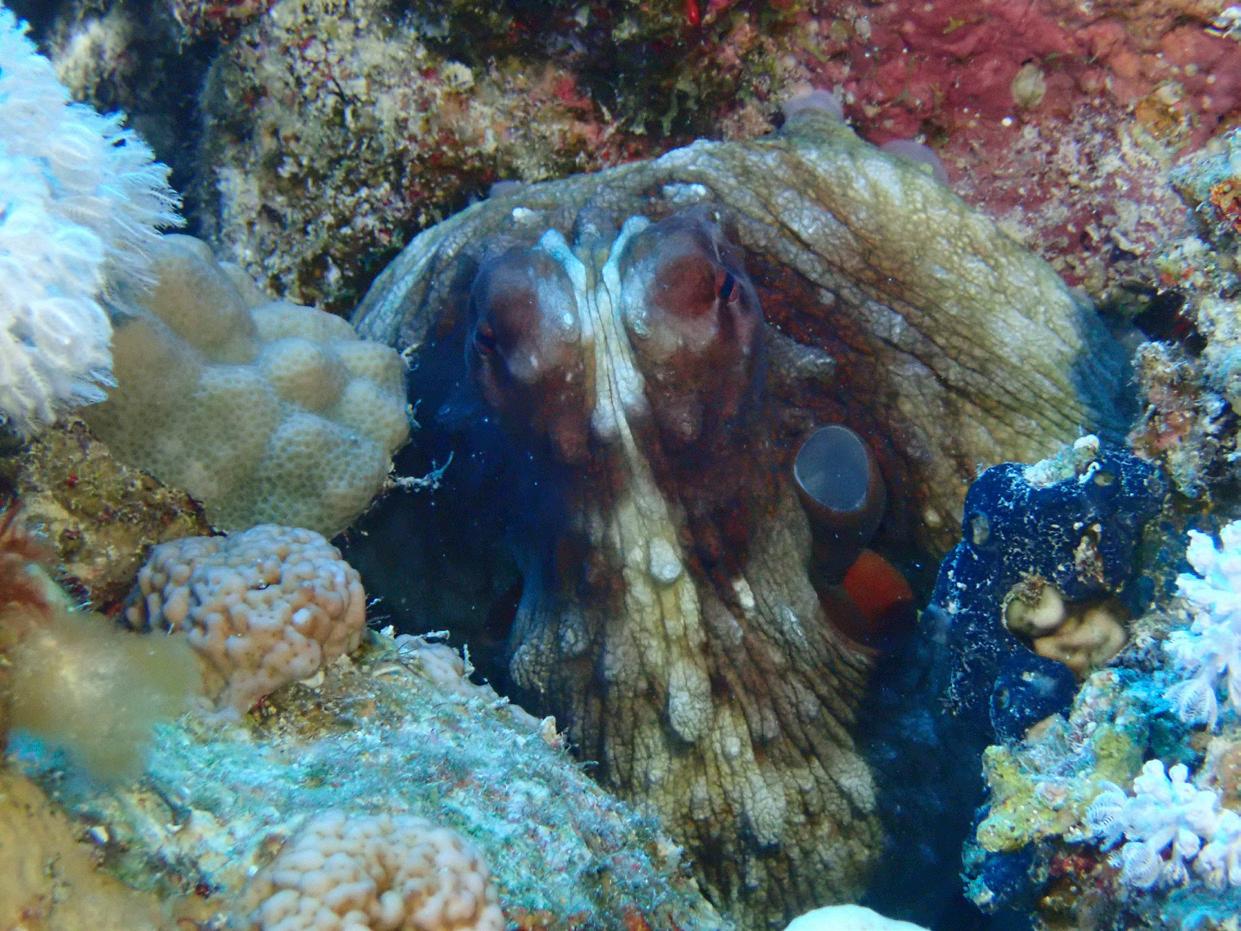
On one particularly lucky early morning dive’s descent, an enormous oceanic manta drifted past us and decided to turn around, giving us a staggeringly beautiful ten minute dance. As she finally swam off, we turned around to a majestic six metre adult whale shark following our trail, and then further on, hammerheads circling below us and slowly making their way up closer. Probably the best forty minutes of my diving life to date.
From this par ticular trip, expect a fishy spectacle. Expect the big stuff. Choose either of these liveaboard operators for high standards of safety and professionalism. You won’t be disappointed.Till next time, happy diving!

LIVABOARD OPERATORS HURGHADA, EGYPT
EMPEROR DIVERS The Divers’ Choice in the Red Sea Tel: +20 122 234 0995 www.emperordivers.com
JP-MARINE Red Sea Diving Safari Tel: +20 122 220 6426 www.jp-marine.net










